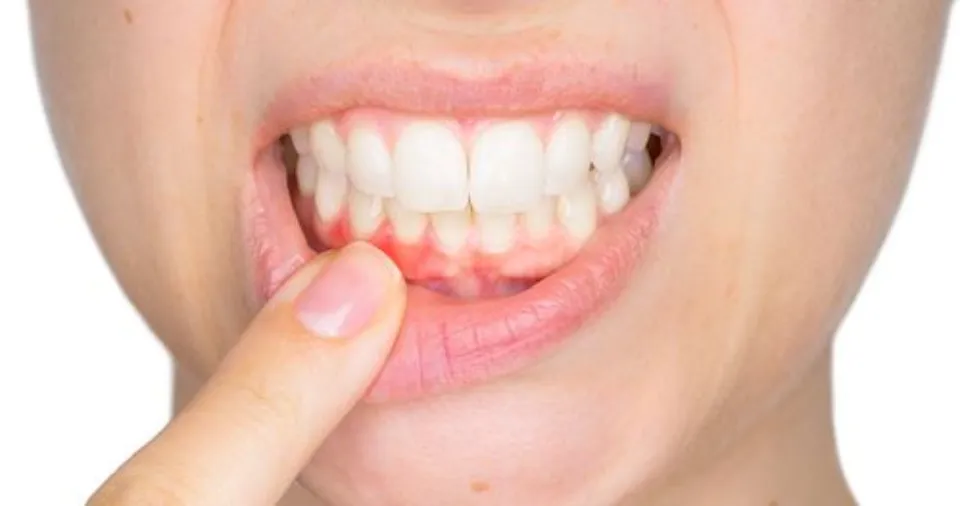
Can Gum Disease Kill You – the Looming Threat
Despite being primarily thought of as a dental problem, gum disease can have significant negative effects on your general health. Gum disease has been linked to a number of systemic diseases, according to research.
This article will discuss the possible dangers that gum disease may pose to your health, emphasizing the value of taking preventive steps to preserve good oral health and protect your overall wellbeing.
How Are My Gums Connected to My Heart?

Heart disease and oral health are associated via something we call the “oral-systemic health connection.” In other words, the cardiovascular system connects the mouth to the rest of the body. When colonies of “bad” bacteria under your bleeding gums dislodge and float from your gum tissue into your bloodstream, they’re able to accumulate inside of arterial walls, your brain, or other parts of the body. They have even been discovered by researchers in the placenta and umbilical cord of unborn or miscarried babies.
Read More: Can Braces Cause Gum Recession
Can Gingivitis Kill You?

Can a gum disease kill you, you may be asking yourself by this point? I’m not sure about other gum conditions, but untreated gingivitis can be fatal.
Your body gradually becomes infected as the infection attacks your organs. You might consequently experience heart issues, eye pain, or breathing difficulties. There are even more serious complications for those who have acute necrotizing ulcerative gingivitis (ANUG). This form of gingivitis encourages the development of gum ulcers, which ultimately results in tooth loss, gum holes, and gum tissue damage.
When gingivitis progresses to gangrene, the tissues surrounding your lip, cheek, and gums may need to be removed as part of the healing process.
It’s critical to find treatment right away if you are diagnosed with gingivitis and start to exhibit severe symptoms.
Signs and Symptoms of Gum Disease
That’s a pretty bad list of medical conditions. How can one tell if they have gum disease? Here are a few signs and symptoms. They either have a connection to gingivitis or periodontitis.
- The early stage of gum disease, gingivitis, is gum inflammation.
- The periodontium, which is made up of the bone and additional structures that support and surround the teeth, becomes inflamed when there is periodontitis. Alveolar bone loss results from the bone inflammation. This is the disease’s advanced stage.
Red Swollen Gums
Your gums might appear to be very red. They might even appear puffy or swollen. Because they should be pink and appear extremely taut, the gums are not healthy. The gums are engorged and filled with bacteria, which causes them to swell.
Bleeding Gums

Gums that are healthy don’t bleed, especially not when you just touch them. Flossing them also prevents bleeding. You have inflammation if brushing or flossing your teeth causes your gums to bleed easily. You are, at the very least, experiencing gingivitis, the early stage of gum disease. Even a metallic taste in your mouth is possible occasionally.
If your gums look like the above, we’re not sure if you should be kissing people with bleeding gums until you get it checked out.
Receding Gums
Your gums could start to recede or shrink in the later stages. The teeth’s root surfaces will be visible, as you can see. Recession-hit areas will be extremely sensitive to cold temperatures. Unfortunately, your gums won’t regenerate. If you prefer, a gum graft with a periodontist or gum specialist may be an option.
he enamel is the white part but towards the gum line do you see the more yellow tooth structure? This root surface is extremely delicate. It shouldn’t be exposed, after all!
Loose Teeth
Loss of teeth is frequently a consequence of end-stage periodontitis. This is due to the disease’s strong inflammation of the bone that surrounds your teeth. You will begin to lose bone once it becomes inflamed. The teeth will start to become loose if enough bone is lost. Unfortunately, once that occurs, there is no way to retighten them.
How Does Gingivitis Affect Your Organs?
There are some deadly diseases, and researchers have explained how gum disease is linked to them. Research is still being done to determine how gum disease significantly influences other chronic diseases.
- Gingivitis and Heart Disease
According to studies, periodontitis, in particular gingivitis, results in chronic inflammation in the body, which narrows arteries and worsens heart disease. Additionally, statistics indicate that in the US, heart attacks cause approximately 610,000 deaths each year.
Another study with 57,001 older adults who were around the age of 68 found that 3.816 of them passed away in the first seven years of the investigation. Furthermore, it was discovered that women who lost their teeth had a 17% higher risk of developing heart disease.
- Gingivitis and a Killer Stroke
Ischemic stroke, one of the fatal types of stroke, has been linked to gum disease, according to the CDC (Centers for Disease Control and Prevention). As a result, there is a cessation of blood flow to the brain, which results in stroke.
According to research on 303 patients who had acute ischemic strokes, those who had gum pockets larger than 6 millimeters (mm) compared to those with 3 millimeters (mm) were at an increased risk of stroke. The main sign of gingivitis, in case you didn’t know, is gum pockets.
According to the studies, those who have severe gingivitis have a twofold increased risk of developing an ischemic cerebrovascular stroke or hemorrhagic, which can sometimes be fatal, compared to those who have mild symptoms.
- Gingivitis and Respiratory Diseases
It is challenging for you to fight gum diseases like gingivitis if you have ongoing respiratory problems and a weakened immune system as a result. The bacteria in this disease enter into your lungs and cause exacerbate COPD and pneumonia.
Approximately 120,000 Americans die from COPD each year, according to statistics, making it one of the leading causes of death in the country. Periodontal bacteria which get into the lungs could cause irritation and inflammation, as a result of which the person feels difficult to breathe.

- Gingivitis and Cancer
According to a study on cancer, those who have gingivitis or periodontitis are more likely to get lung cancer than those who don’t.
In fact, those who experienced severe gingivitis and lost their teeth had an 80% chance of developing colorectal cancer. In the same way, non-smokers with gingivitis. Additionally, pancreatic cancer has been noted to occur, albeit insignificantly, among people with gum disease.
- Gingivitis and Stomach Ulcers
Helicobacter pylori (H pylori) is likely present if you frequently get cramps and have ever had stomach ulcers. It is a bacteria that causes gastritis and peptic ulcers in your stomach. Although it is not fatal, it can occasionally progress to gastric cancer and result in the patient’s death.
The majority of the patients in a study of 101 people (of whom 50% had H pylori) had the same pathogen in their mouths as in their stomachs, and the likelihood that it had been spreading from their gums to their stomachs and causing peptic ulcers is high.
The likelihood of developing stomach ulcers is greatly increased if gingivitis is treated when it is in its early stages.
- Gingivitis and Diabetes
People who have diabetes, specifically Type 2, have a double the risk of developing periodontitis. The relationship between gum diseases and diabetes is thought to be reciprocal, though.
It can be explained that when bacteria from your gums enter the bloodstream, your immune system becomes active and tries to fight those bacteria, resulting in unbalanced blood sugar levels and making it difficult for the body to control. Furthermore, gingivitis is aggravated by high blood sugar levels.
In order to eliminate gum bacteria and control blood sugar levels, it is crucial to undergo a periodontitis procedure.
- Gingivitis and Pregnancy
Gum disease and pregnancy are connected. Gum diseases are more common in women than men because of hormonal changes. But severe gingivitis during pregnancy affects people who already have gum problems.
In a study done on pregnant women in London, UK, at 12 weeks’ gestation, 131 of 1793 gave birth prematurely, while 16 of them experienced a late miscarriage. Since preterm births and late miscarriages have been linked to periodontitis/gingivitis, this has been established as a major contributing factor.
- Gingivitis and Alzheimer’s Disease
To ascertain whether gingivitis and Alzheimer’s are connected, additional research is being conducted. Fortunately, there is no connection between the two. The risk of developing Alzheimer’s disease is, however, 70% higher in patients with chronic gingivitis/periodontitis for 10 years or longer.
It happens when a bacteria called Spirochetes crosses the blood-brain border, enters the brain, and starts multiplying and affecting your brain. As a result of your body’s natural defense system being activated to combat these external pathogens, you may experience inflammation, foggy thinking, dementia, and, in the worst cases, death.
If you’re still unsure about whether gum disease can kill you, reconsider. You’ve been ignoring a significant issue. But don’t worry; the precautions listed below will undoubtedly help you avoid this condition in the first place.
Conclusion
Gingivitis and gum disease symptoms are serious threats to your health, so treat them seriously. Can gum disease be treated? Gum disease is irreversible, yes. No, but in order to prevent further damage to your gums, you must seek professional assistance. Gum disease cannot be effectively treated at home. Call Southland Dental Care right away to schedule your free dental consultation, whether you require gingivitis treatment or want to learn how to get rid of gum disease.





Average Rating